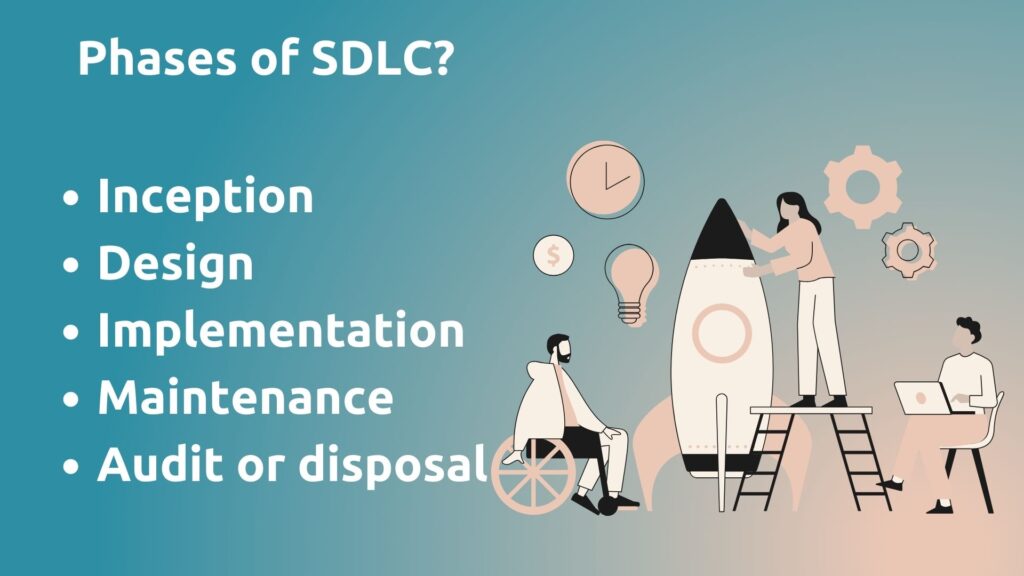Software development is the process of generating and maintaining applications, frameworks, or other software components through conceiving, specifying, designing, programming, documenting, testing, and bug-resolving.
Software development leads to developing and maintaining source code, but it also comprises all steps from the conception of the desired software through its ultimate manifestation, often in a planned and disciplined process that frequently overlaps with software engineering.
Research, new development, prototyping, modification, reuse, re-engineering, and maintenance are all examples of software development activities.
Importance of Software Development
All industrialized countries’ economy relies on software. Software is controlling an increasing number of systems. Software engineering is concerned with the theories, methods, and tools used in professional software development.
In all industrialized countries, software spending accounts for a sizable portion of GDP. Software costs frequently exceed computer system costs. The expenses of software on a PC are frequently more than the costs of hardware.
Software maintenance is more expensive than development. Maintenance expenses for systems with a long life cycle might be many times the development costs. The goal of software engineering is to create cost-effective software.
Characteristics of Software Engineering
Some Common Characteristics of Software Engineering include:
1. Problem-solving skills: Software engineering involves identifying and solving problems related to software development, maintenance, and management.
2. Programming expertise: Software engineers need to be proficient in one or more programming languages and should be able to write efficient, maintainable, and scalable code.
3. Attention to detail: Software engineering requires careful attention to detail during the design, development, and testing phases to ensure that software applications are functional and bug-free.
4. Collaboration: Software engineering is often a team effort, and engineers need to be effective communicators who can work well with colleagues across various roles and functions.
5. Adaptability: Software engineering is a rapidly evolving field, and engineers need to be flexible and adaptable to stay up-to-date with new technologies, frameworks, and methodologies.
6. Strong analytical skills: Software engineering involves analyzing business requirements and designing software that meets those requirements. Engineers should have a strong analytical skill set to ensure that software products meet organizational needs.
7. Creativity: Software engineering requires creativity to develop innovative solutions that solve complex problems.
Advantages and Disadvantages of Software Development
There are several pros and cons of software development including accuracy, cost-effectiveness, scalability, faster response, and high profit margin and drawbacks may include high initial cost, maintenance cost, security issues, and many other issues. Let’s look at these pros and cons.
Advantages of Software Development
Many benefits of software development like cost effectiveness, scalability, competitive advantage, accuracy, and more. Here is a brief detail of software development advantages. Let’s explore.
1. High accuracy
Software applications are programmed to perform specific tasks with high accuracy, leading to fewer errors and more consistent outcomes.
2. Scalability
Software solutions that are specifically created for a company may be more scalable, facilitating the expansion and development of the company. They don’t have to be created from scratch; they can be altered and developed.
3. Cost-effective
Custom software development can be more cost-effective than purchasing off-the-shelf solutions, as it’s tailored to the specific needs of the organization and might reduce the number of tools needed.
4. Improved efficiency
As was already noted, software development can automate difficult operations and procedures, increasing productivity and reducing workload. The likelihood of human error is decreased, and organizational effectiveness is raised.
5. Competitive advantage
Custom software development can provide an organization with a competitive advantage by creating unique solutions that support their specific business processes.
6. Adaptation in Changes
Although software development is continually changing, investing in it can help your company keep current with emerging trends and specifications. Customized software can adjust to adjustments in your market, clientele, or internal operations.
7. Faster Response Time
By automating time-consuming and repetitive operations, software development ensures that they are executed swiftly and properly, resulting in shorter turnaround times and higher customer satisfaction.
8. High Profits Margin
Software development can lower operational expenses and enhance business operations, resulting in higher profits. Depending on your organization, custom software might generate new revenue sources.
9. Privacy and data protection
By creating custom software solutions, you assure the security of your data. Your company can comply with requirements and secure sensitive information by using stronger data management and security solutions.
10. Improved Customer Experience
You can design specialized software to meet the particular requirements of your clients and enhance their interaction with your company. This can range from intuitive user interfaces to tailored recommendations.

11. Simplified Communication
Teams or organizations can communicate more effectively and efficiently by using digital solutions like email, instant messaging, and team collaboration tools. Real-time tracking of tasks and projects is made simpler.
12. Better Decision-Making
Software development can assist in data analysis, giving you information about the performance and trends of your company’s operations. Decision-making, problem-solving, and strategy planning can all benefit from this data.
Disadvantages of software development
Everything has its pros and cons and the same for custom software development. It has many benefits but some drawbacks of software development include, high initial cost, risk of failure, maintenance cost, and more. Let’s look at these cons of software development.
13. High initial cost
Custom software development can be expensive, with high costs involved in the initial design and development stages.
14. Time-intensive
Custom software development can take time, with a long development cycle to identify requirements, design, develop, test, and implement the software.
15. Maintenance
Custom software requires ongoing maintenance and updates, which can be costly and time-consuming.
16. Integration challenges
Custom software applications may need to integrate with existing systems, which can present technical challenges and require additional development time.
17. Risk of failure
Software development involves risk, with a potential for project failure if the software does not meet user requirements or is not adopted by end-users.
18. Dependence on developers
Developing custom software requires specialized skills, which may make an organization heavily reliant on specific developers or development teams.
19. Insufficient Flexibility
It may be difficult to adapt or modify custom software once it has been designed to meet shifting business requirements. This may be a serious drawback for companies that need to quickly change course with their operations.
Overall, even though automating processes and increasing efficiency might help organizations that produce software, it is important to consider the associated expenses, time commitments, and resources required to create, support, and upgrade software.
When deciding whether to use bespoke software in their operations, organizations can make educated decisions by being aware of the potential drawbacks of development.

20. Adoption Challenges
Getting staff on board with customized software may require significant training and adoption efforts. There may be a learning curve involved, which can be a major obstacle for some organizations.
21. Inadequate Supplier Support
It may not always provide vendor support for custom software. With updates, bug patches, or problems that occur during installation or use, this could be a drawback.
22. Security concerns
Benefit sometimes change into drawbacks. There may be more security concerns with custom software or applications.
To ensure data security and protection, they might need particular processes. For security lapses and data leaks, which may have negative legal and financial effects, this could be a drawback.
23. Collaboration Problems
When software is created for one platform but used on another, compatibility problems may occur. An application that runs on Windows, for instance, might not run on Mac or Linux. If your company uses many platforms or your clients run different operating systems, this could be a problem.
24. Upkeep and Updates
Upkeep means to repair. To keep the software operating properly after it has been installed, it will need regular upkeep and updates. This may need more effort, money, and time.
25. Resource-Intensive
The creation of custom software causes the use of specialized personnel, software, and technology. Organizations that are already stretched thin, especially in terms of resources like money, people, or infrastructure, may find themselves under a heavy load because of this.
FAQs
What are the benefits of software development?
. Businesses benefit from developments in terms of greater efficiency, scalability, simplified communication, and better decision-making through data analytics.
Custom software solutions can automate time-consuming operations, reduce errors and increase productivity. With better communication and data management capabilities, companies can make smarter decisions and gain valuable insights into their operations.
What do Software Engineers Specialize in?
Software engineering as a profession has two main specializations: software/system development and application development. Application developers examine user needs to design and code computer applications for various platforms such as the web, social media, and mobile.
What are the Software Engineers Trend?
Artificial intelligence and machine learning are the last two software engineering trends. AI and machine learning technologies are used by software developers to create smarter software solutions. Another trend is the use of containerization technologies.
Containerization is placing a software component and environment, its dependencies, and configuration in an isolated unit called a container. Another trend in software engineering is cloud computing.
Cloud computing is the discretionary availability of computer system resources, especially data storage and computing power, without direct active management by the user.
Other software engineering trends include the use of DevOps practices to streamline software development and distribution
Conclude
Custom software development is a great approach for SME businesses or large businesses. But their functionality depends on various factors like business requirements, UX design, development expertise, testing, budget, time constraints, and ongoing maintenance and support.
If we’ll not consider these factors, it may not be helpful for your company. We hope this article’s advantages and disadvantages of software development help you more. If you need anything else, let us know in the comment section.
Read More What Are The Main Basic Services Of Internet? Advantages And Disadvantages Of Computers | A-Z Guide

